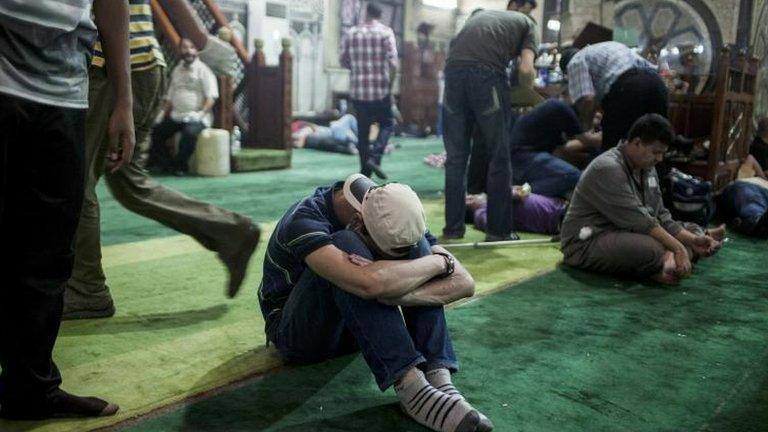Ibrahim Halawa: UN intervenes in case of Irish man imprisoned in Egypt
- Published
Ibrahim Halawa, from Dublin, faces a mass trial and possible death penalty with nearly 500 others
The Egyptian government has rejected UN allegations about the treatment of an Irish man imprisoned without trial for more than two and a half years.
Ibrahim Halawa was 17 when he was arrested during a siege on the Al-Fath mosque in Cairo in 2013. The 20-year-old could face the death penalty.
The UN intervention was made last year, but details have only just emerged.
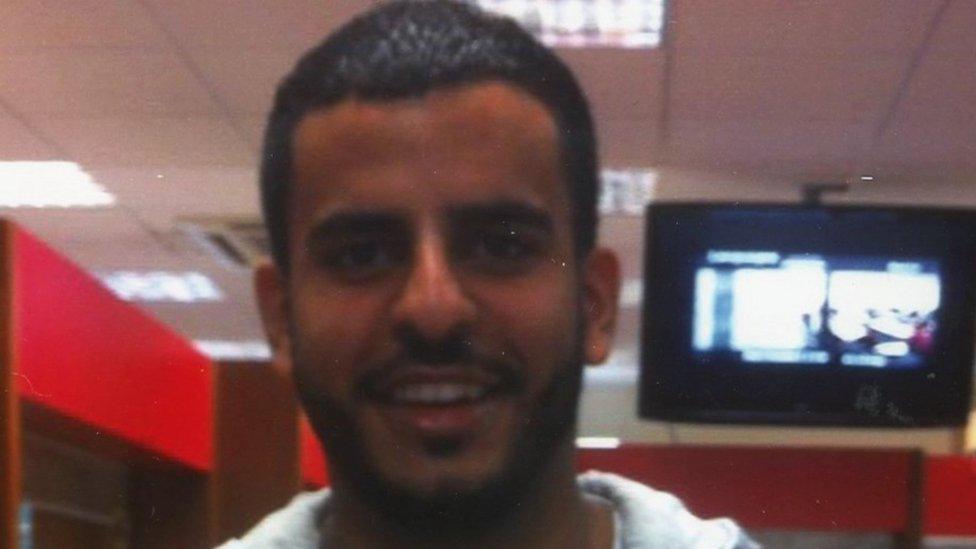
Ibrahim Halawa was 17 when he was arrested during a siege on the Al-Fath mosque in Cairo in 2013
Mr Halawa's family have welcomed the move, but said the Irish government should do more to secure his release.
Ibrahim Halawa, from Dublin, is the son of Ireland's most senior Muslim cleric.
Three of his sisters were also arrested at the Al-Fath mosque, but were later released on bail.
The family say they were on holiday at the time and had sought refuge in the mosque to escape the violence outside.
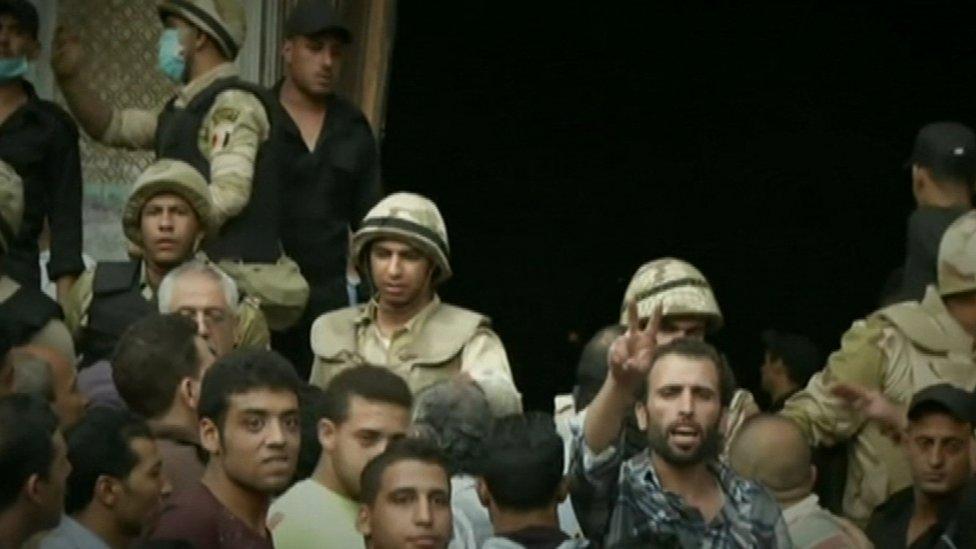
The family say were on holiday at the time and sought refuge in the mosque to escape the violence outside
They deny claims that Ibrahim is a member of the Muslim Brotherhood, which is Egypt's oldest and largest Islamist organisation.
The current Egyptian government has declared it a terrorist group, a claim it rejects.
Ibrahim Halawa and 492 others have been charged with murder and a range of other serious offences.
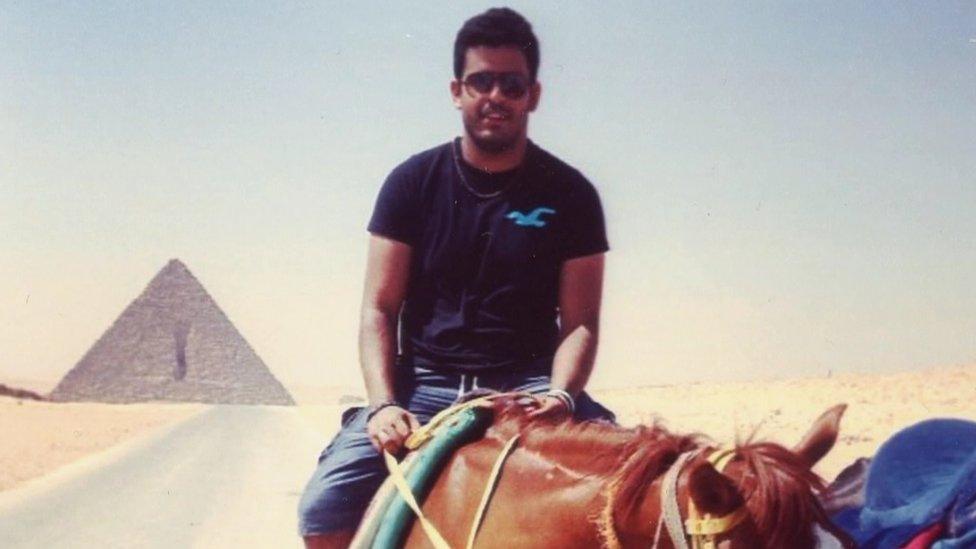
Ibrahim was held in an Egyptian prison for more than two years
Their trial has been adjourned 13 times.
One of his sisters travelled from Dublin to Belfast on Wednesday to meet the family's lawyer.
Somaia Halawa said she is deeply concerned about the way her brother has been treated.
"He was electrocuted, he was beaten, he was tortured. He never attended a trial, he has no access to a lawyer," she said.
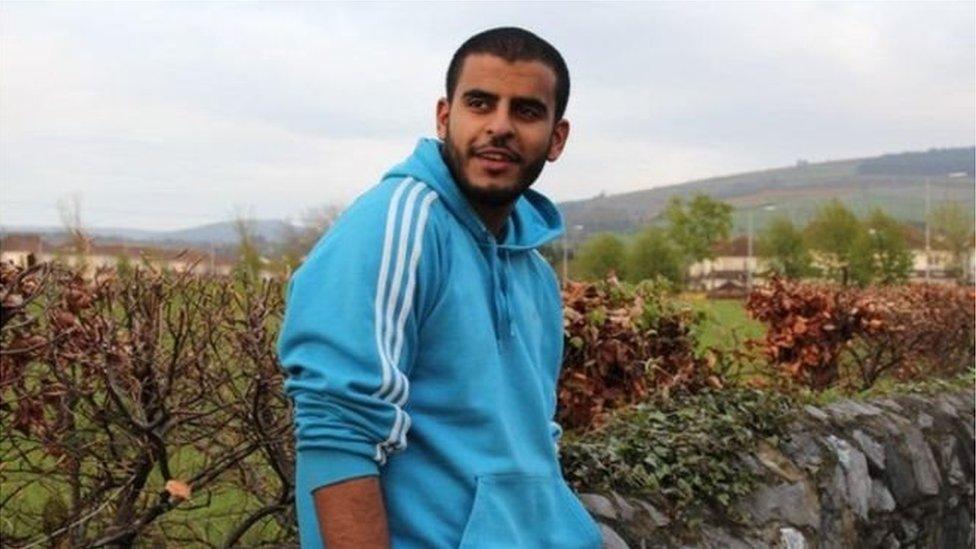
Mr Halawa has spent two and a half years in jail
Those concerns are shared by the United Nations.
It has emerged that officials from the Office of the High Commissioner for Human Rights wrote to the Egyptian government last year.
They described Ibrahim Halawa's case as "a matter warranting immediate attention".
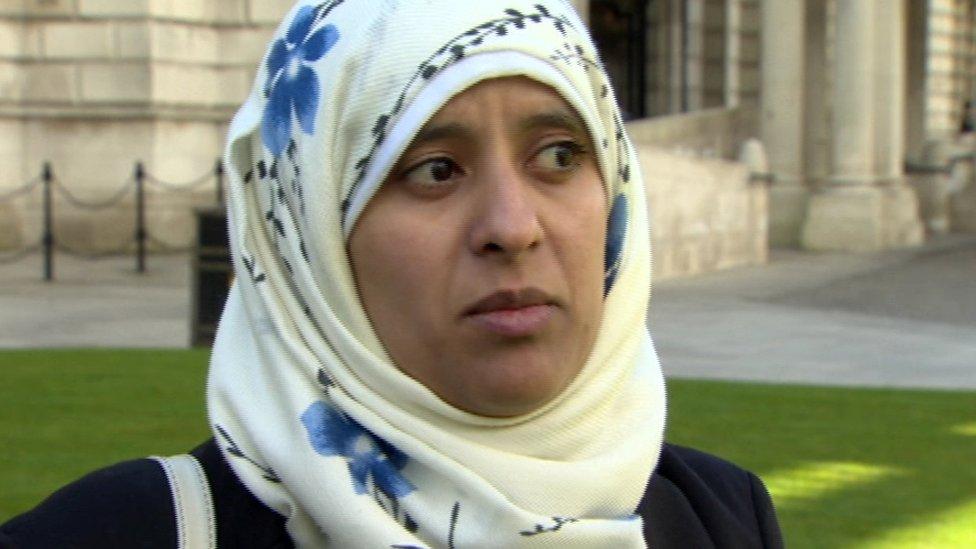
Somaia Halawa says she is deeply concerned about the way her brother has been treated
The letter said he had been shot in the hand during his arrest and did not receive proper medical treatment.
It said he was being held in "deplorable conditions", and that prison officers had subjected him to physical and psychological abuse.
The UN team also said it was "in contravention of basic guarantees of fair trial and due process of law" that he had not had adequate access to a lawyer.
In response, the Egyptian government denied that Ibrahim Halawa was shot in the hand during his arrest, or had been beaten while in prison.
It said a medical examination had found "traces of old wounds" but no recent injuries, and described his general health as "sound and stable".
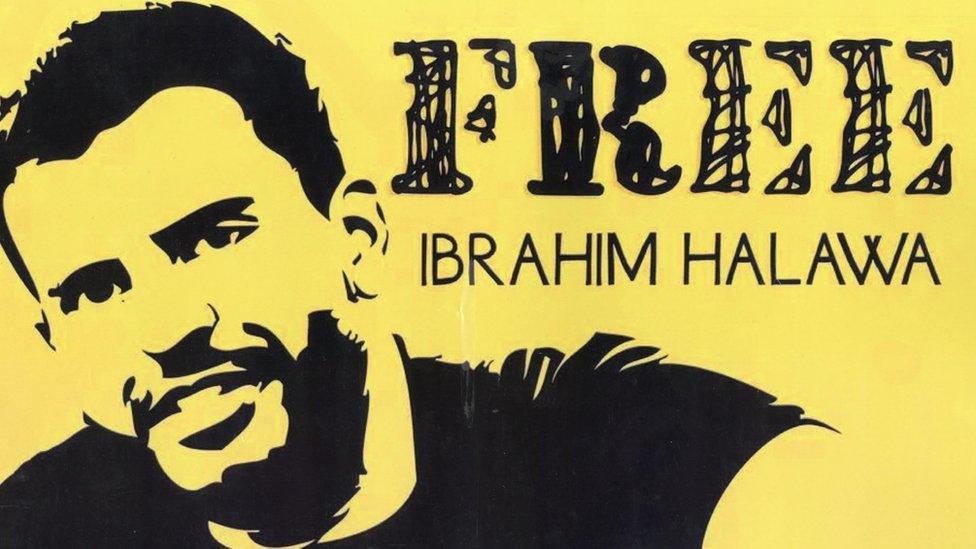
Campaigns have been ongoing for Ibrahim Halawa's release
The response did not directly address the concerns raised about lack of adequate access to a lawyer.
The Halawa family has welcomed the UN intervention.
"It is very, very important to our campaign because this just proves what we have been saying for almost two and a half years, and people have been denying that this is actually happening to Ibrahim," said Somaia Halawa.
But the family and their legal team said the Irish government should do more.
'Gloves off'
"It's got to a stage now where the family believe that it's time for the gloves to come off," said solicitor Darragh Mackin.
"It's time to put pressure on the Egyptian government directly and that diplomacy may not work in circumstances whereby it's a grave breach of international law and a grave breach of Ibrahim's human rights as an Irish citizen."
The Halawa family said they are alarmed by reports from Egypt in recent days that all of those charged may have been declared guilty without a trial taking place.
Their legal team said it will be asking the Irish government to seek clarification of the situation.
- Published7 March 2016
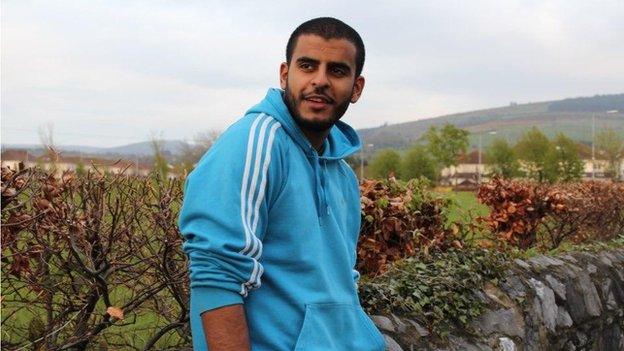
- Published9 January 2016

- Published17 December 2015
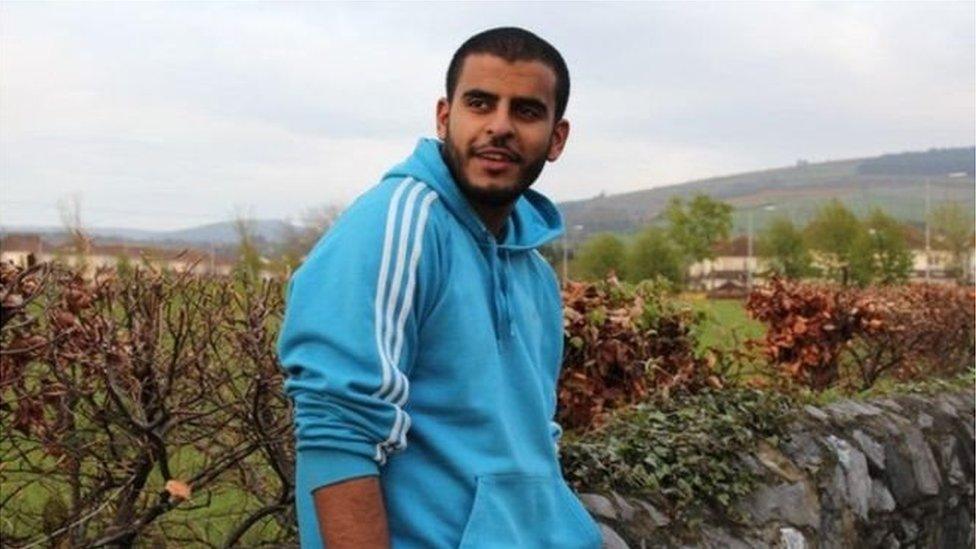
- Published1 December 2015

- Published4 October 2015

- Published2 August 2015

- Published3 June 2015

- Published30 March 2015
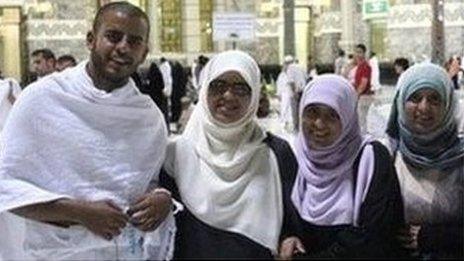
- Published8 February 2015
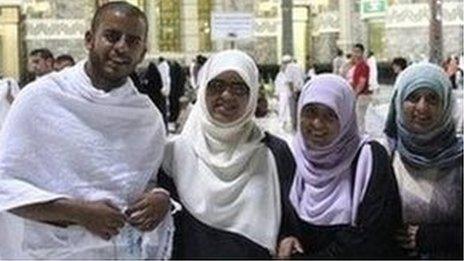
- Published5 February 2015

- Published17 August 2014
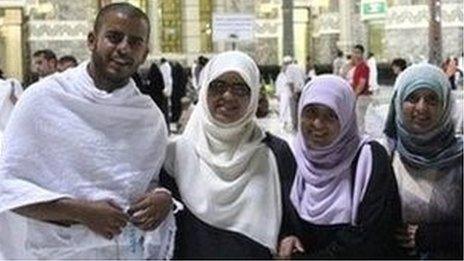
- Published17 August 2013
